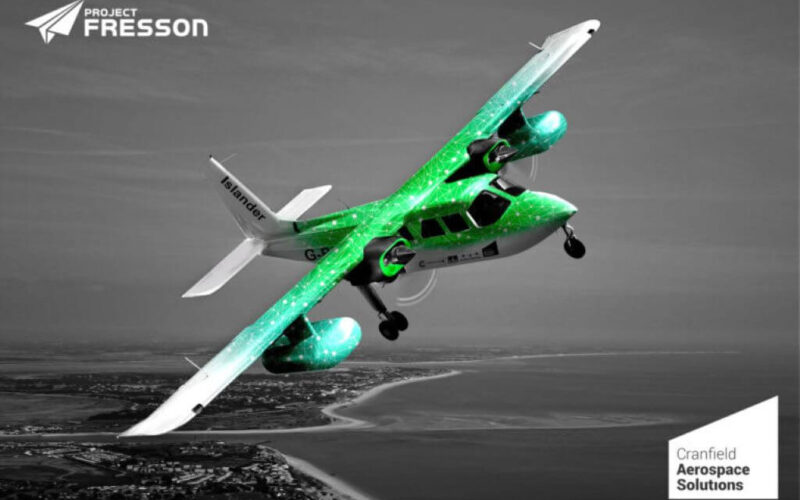An environmental group is calling on the British government to require airlines to operate some UK domestic flights with electric and hydrogen aircraft before the end of the current decade.
In a new paper released on January 10, 2022, Transport & Environment (T&E) also recommends a ban on polluting aircraft on UK domestic routes in 2040 and fully replacing fossil-based kerosene by 2050.
The announcement came on the same day as British airline easyJet announced it was working with Cranfield Aerospace Solutions to support the development of a hydrogen fuel cell propulsion system for commercial aircraft.
Cranfield Aerospace Solutions (CAeS) is working on the fuel cell system for an existing 9-seat Britten-Norman Islander aircraft, which is planned to be flying by 2023. easyJet said it will provide expertise on how hydrogen propulsion could be integrated with airline operations.
The aviation industry is under pressure to reduce emissions and make flying kinder to the environment. Politicians are promising action, with France moving to ban some domestic flights on routes where high-speed trains are available and Denmark’s government vowing to make domestic flights fossil fuel-free by 2030.
T&E, a European non-governmental organization campaigning for cleaner transport, also calls in its policy paper for more public funding for electric and hydrogen aircraft, notably a tax on kerosene, which it wants to be introduced from 2025.
“A ban on conventional aircraft for domestic flights is necessary if the government wants to fulfill its Jet Zero ambitions,” Matt Finch, UK Policy Manager at T&E, commented in a press release.
In 2021, the UK held a consultation on its plans to reach net zero aviation by 2050, a plan dubbed Jet Zero, and is due to set out its final plans in 2022. The Aerospace Technology Institute announced the FlyZero initiative in 2020 to help the UK aerospace industry develop a zero-carbon emission aircraft by 2030.
T&E believes the UK government should force airlines to start operating a small percentage of their internal flights with electric and hydrogen aircraft from 2028. This percentage should be increased over the following decade, with the aim of banning traditional aircraft by internal flights from 2040.
“A 2040 deadline for polluting jets will help transform the UK into a global leader on zero-emissions aircraft,” Finch added. “Electric and hydrogen aircraft should be supported with taxpayer money in the early years, before airlines are required to use them by law.”
Companies currently working on zero-emissions aircraft include ZeroAvia, which hopes to operate a 19-seater aircraft between the UK and the Netherlands in 2024, and Wright Electric, which aims to bring a 100-seat electric regional aircraft to market by 2026.
In its statement, easyJet, which is also working with Airbus, Rolls-Royce and Wright Electric on zero-emissions technologies, said it was “optimistic” that it could begin flying customers on planes powered by hydrogen-combustion, hydrogen-electric or a hybrid of both by the mid to late-2030s.
“We know that technology is a key driver to achieve our decarbonization targets with hydrogen propulsion a frontrunner for short-haul airlines like easyJet,” David Morgan, easyJet director of flight operations, commented.
What about long-haul?
T&E acknowledges that longer flights are a different matter, with electric and hydrogen aircraft technology unlikely to be suitable for such flights in the coming decades.
Therefore, longer flights should fly only on 100% sustainable aviation fuel (SAF) from 2050. This should be made from both waste-based SAF and e-kerosene, the group recommends.
Airlines are increasingly using SAF in their operations, blended with regular kerosene, but so far it is only available in limited quantities. Industry association IATA estimates that SAF production will reach 7.9 billion liters in 2025, equivalent to just 2% of the airline industry’s total fuel requirement.
To boost production of these fuels, the UK government should provide loan guarantees, as well as mandate SAF at fuel suppliers.
Taxes on kerosene should also be used to drive SAF production, as well as for zero emissions technology.
“Today, any motorist filling up their car’s petrol tank pays more fuel duty than any British airline. It’s time to finally tax fossil kerosene and use a large portion of the income to set the industry on a realistic path to net zero,” declared T&E’s Finch.

